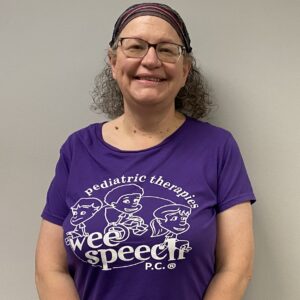May is Better Hearing & Speech Month (BHSM). It is a great time to spotlight the importance of early detection and treatment of communication disorders.
Speech-language pathologists assess and treat difficulties in:
- speech (pronunciation)
- language (understanding and using words and sentences)
- stuttering
- literacy (reading and writing)
- social skills
- listening and auditory processing
- voice
- feeding and swallowing
How do you know if your child should see a speech-language pathologist?
Some potential warning signs of speech and language problems include:
- you or other people are having difficulty understanding your child (by age 3, a familiar listener should understand at least 75% of what your child says; by age 5, children should be able to say most speech sounds.)
- people think your child is younger than they are because of the way they speak
- your child is using fewer words than other children his age (by age 2, your child should be using at least 50 words and starting to combine 2-3 words together)
- your child stutters
- your child is being teased or is showing frustration because of the way he talks
- your child’s interactions or play seems unusual or inappropriate
- your child is struggling with reading or writing
You can check your child’s level of speech and language development with these checklists from the American Speech-Language-Hearing Association:
https://www.asha.org/public/speech/development/chart/
Get a Free Online Assessment
Looking for an expert opinion on your child's needs? Fill out a 3 minute questionnaire and receive a personal evaluation from our staff



